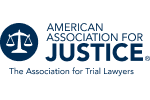Defense Lawyers
Preliminary Hearing and Bond Reduction
A preliminary hearing is not your trial. The judge will not find you guilty or innocent. There is no jury. The rules of evidence do not apply. Hearsay is admissible. The judge at the preliminary hearing will not allow a suppression motion. The issue of bond reduction is also addressed.
At a preliminary hearing the judicial officer shall determine probable cause and the conditions for release, if any. A finding of probable cause may be based on hearsay evidence. Objections to evidence on the ground that it was acquired by unlawful means are not properly made at the preliminary hearing.
If from the evidence it appears that there is probable cause to believe that an offense has been committed by you, the judicial officer shall bind the defendant over to await action of the grand jury. If from the evidence it appears that there is no probable cause to believe that an offense has been committed by you, the defendant shall be discharged from custody. The discharge of the defendant shall not preclude the state from instituting a subsequent prosecution for the same offense. This means the charge can still be presented to the Grand Jury, even if it was dismissed at preliminary hearing.
If a defendant is in custody, he has a right to a preliminary hearing. If the defendant has been released on a bond, he may petition the court for an out of custody preliminary hearing, but this is not a right.







